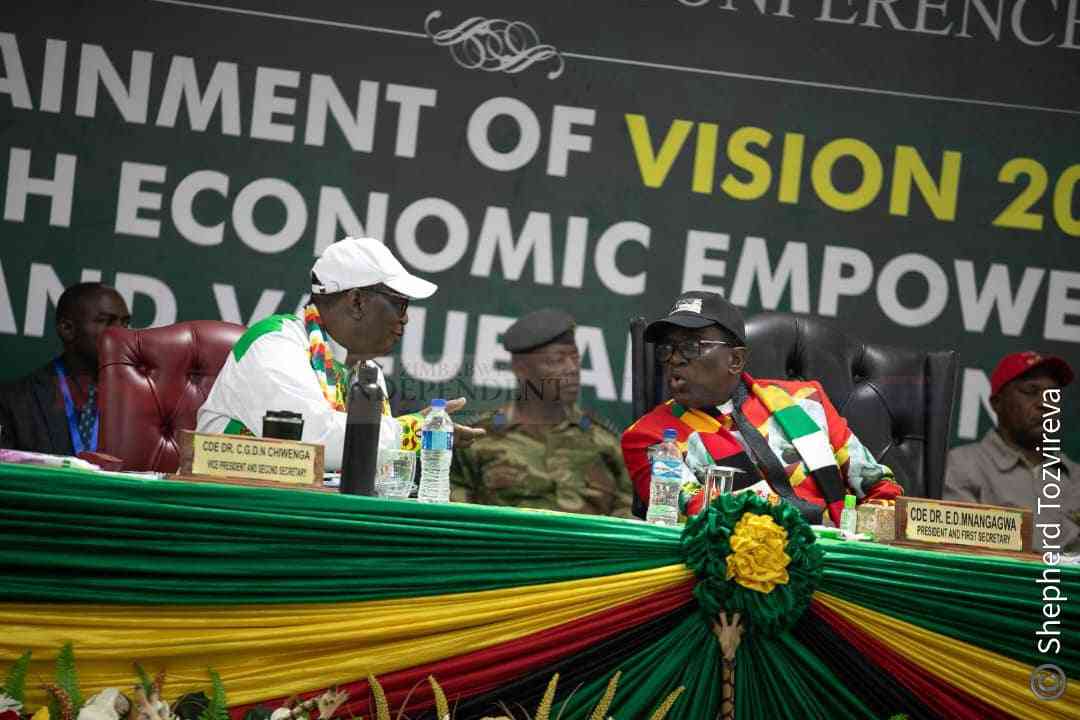
The letters, made up of huge stones coated with white paint, were a bold sign for travellers that they were passing through the famous Mbungo Estates, the spiritual home of the Zion Christian Church.
But now the unmistakable letters have been eclipsed by a green and white majestic conference centre with a capacity to accommodate over 15 000 people that is now the main spectacle in rural backwater, Bikita.
So imposing is the church complex that it’s a game changer for the faithful, sending a message to outsiders that ZCC, whose roots can be traced back to 1913, remains vibrant in the face of sprouting Pentecostal churches led by young charismatic preachers.
And indeed this is a reality.
A team from The Standard that visited Mbungo last week was amazed by the transformation of the once dull headquarters of the ZCC into modern church headquarters, replete with a guest house, offices, library and a communications centre.
The big church complex constructed at an estimated US$2 million, is a sign of the rapidly changing fortunes of what used to be a dusty compound dotted with small huts that housed the church faithful in the early 90s.
On Wednesday, Mbungo was brimming with young and old people, some in designer suits, and others with crude home-made sandals. They were the first to turn up for the annual ZCC pilgrimage that has been held at Defe for the past 34 years to commemorate the death of founder member, Bishop Samuel Mutendi.
This year, the pilgrimage was moved to Mbungo for the consecration of the new conference centre in a jamboree that ended yesterday.There was this mix of rural and urban people, one church official remarked, that made the ZCC such a formidable force on the religious landscape, with close to a million active members.
- Chamisa under fire over US$120K donation
- Mavhunga puts DeMbare into Chibuku quarterfinals
- Pension funds bet on Cabora Bassa oilfields
- Councils defy govt fire tender directive
Keep Reading
Now the church has branches in Botswana, Lesotho, UK, America and SA, among other countries.
While it was impossible for The Standard to meet ZCC leader Bishop Nehemiah Mutendi who was locked up in a dare (church meeting), officials described developments at Mbungo as exciting.
Sanctions Mutendi, who is the headmaster at Mutendi High School and an advisor to the Bishop, said it took them five years to construct their multi-purpose centre.
He said ZCC meetings were never destined to be held under the trees.
“The ZCC built churches in the colonial times starting with one at Mutawarira,” he said.
“Six of these churches were however destroyed by authorities who associated the rise in black independent church movements with nationalism.”
He also talked about opposition by main line churches against the founder of ZCC, who was also building schools.
The history of the Zion Christian Church
According to church officials, the founder of ZCC, Bishop Samuel Mutendi, started speaking in tongues in 1913 while he was still a member of the British South African Police in Chegutu, then Hartley.
Some in the Dutch church developed a dim view of him thinking he was possessed by multiple demons.
Mutendi had to go to South Africa where he identified himself with the ZCC in Transvaal. The former policeman came back a powerful preacher armed with a spiritual rod dubbed mapumhangozi.
How the charismatic Mutendi acquired and used mapumhangozi is steeped in both mystery and controversy but what is generally agreed is that the stick was handy when he performed miracles.
This, together with his powerful teachings, helped him grow his church from a small congregation in Bikita to one of the largest religious organisations with wings across the country and beyond.
Bishop Mutendi was forced to relocate to Defe in Gokwe in the 60s. When he died on July 20 1976 his son, Nehemiah, moved the church back to Masvingo in 1981.
Nehemiah pursued his father’s dream by building schools and modernising the church.
Double storey structures at Mbungo, dubbed “The Land of Peace”, bear testimony to his transformative agenda.
Nyasha Marufu, a telecommunications student, travelled all the way from Algeria for the pilgrimage.
“I wasn’t born in ZCC, I was converted,” said Marufu beaming with pride.
“Some people look down upon our church, but they do know that it is offering the community schools, values and shoko rowedenga (word of God) that is helping many people,” he said.
ZCC criticised for ‘exploiting’ the faithful
But like other churches in Zimbabwe, ZCC, which is well-known for faith healing, has received its fair share of criticism for accepting donations from people who are too poor to part with their cash and beasts.
Villagers also trek to Mbungo estates to plant church crops and they are involved in harvesting them.
However, a church official, who preferred not to be named for protocol related reasons, said such criticisms by outsiders were unfounded.
“ZCC, unlike other churches, has no donors. Party members fund whatever costs that are associated with running the church. They do it voluntarily, knowing that if they don’t do it, the church will collapse,” said the official.
He pointed at the massive buildings at Mbungo as the result of the work of church members’ sacrifices.
He said ZCC was also giving back to the community by running a number of schools and sponsoring more than 300 disadvantaged children to acquire an education.
Between 61 to 100 students were being assisted with university fees, he added.










